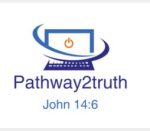Problem: Evangelical scholarship is divided as to whether there was a lost letter (often called the “sorrowful letter”) in between 1 and 2 Corinthians. Paul writes, “For out of much affliction and anguish of heart I wrote to you with many tears” (2 Cor. 2:4), and later he writes, “For though I caused you sorrow by my letter, I do not regret it; though I did regret it—for I see that that letter caused you sorrow” (2 Cor. 7:8). When Paul refers to an earlier letter, is he referring to a lost letter, or is he referring to 1 Corinthians?
petra1000
2 Cor 1:8 – Will God give us more than we can handle or not?
Problem: Paul writes, “We were burdened excessively, beyond our strength” (2 Cor. 1:8). However, in his first letter to the Corinthians, he wrote, “God is faithful, who will not allow you to be tempted beyond what you are able” (1 Cor. 10:13). Will God give us more than we can handle or not?
1 Cor 16:20 – Should we greet each other with a holy kiss?
Problem: Paul commands Christians to greet each other with a holy kiss? Is this morally binding for today?
1 Cor 16:2 – Do we have to meet on Sunday for church?
Problem: Paul writes, “On the first day of every week [Sunday] each one of you is to put aside and save, as he may prosper, so that no collections be made when I come” (1 Cor. 16:2). Does this mean that Christians are mandated to meet on Sunday morning for church? Is it biblically permissible to meet on another day of the week?
Solution: The NT does not command us to meet on Sundays or any other day of the week. While there are some examples of Christians meeting on Sundays in the early church, these are descriptions –not prescriptions. That is, while we have examples of Sunday meetings, we do not have imperatives or commands for this anywhere in the NT. Moreover, we even have examples of Bible studies occurring on Saturdays, during the Jewish Sabbath (Acts 13:13-14; 16:13; 17:2). We do find an example of Paul breaking bread and teaching on a Sunday in Troas (Acts 20:7), but this was actually a nighttime meeting (“He prolonged his message until midnight.”). This wouldn’t fit with the traditional paradigm (meeting until midnight?). Therefore, these NT examples should not be binding to us. In fact, other NT examples demonstrate that we should meet “daily” (Acts 2:46 NIV).
In addition, the NT explicitly teaches that no days are specifically holy. Paul writes, “One person regards one day above another, another regards every day alike. Each person must be fully convinced in his own mind” (Rom. 14:5). In other words, these are negotiable issues –not morally objective ones. Elsewhere, Paul explicitly writes, “Therefore no one is to act as your judge in regard to… a Sabbath day” (Col. 2:16). Paul even admonishes the legalism of the Galatians, because they were observing “days and months and seasons and years” (Gal. 4:10). Jesus himself taught that he was “Lord even of the Sabbath” (Mk. 2:28; c.f. Lk. 6:5).
1 Corinthians 16:2 does explicitly speak about “the first day of every week,” but this is not referring to a church service. When we consider the context, Paul’s primary purpose was financial giving –not church meetings. Even if this was a church service, this is not at the heart of Paul’s command. Instead, he is commanding them to set aside their money; he is not telling them when to meet together. This would be twisting the spirit of this passage.
“Upon the first day of the week let every one of you lay by him in store, as God hath prospered him, that there be no gatherings when I come.
(1 Cor 16:2)”
1 Cor. 15:52 – The last trumpet?
Problem: Paul writes, “In a moment, in the twinkling of an eye, at the last trumpet; for the trumpet will sound, and the dead will be raised imperishable, and we will be changed” (1 Cor. 15:52). Advocates of a post-tribulational rapture argue that this aligns with the last trumpet in the book of Revelation. Is this the case?
1 Cor 15:50 – If flesh and blood cannot enter heaven, then how can there be a physical resurrection?
Problem: The Bible speaks of the resurrection of the physical body from the grave (John 5:28–29), which is composed of “flesh and bones” (Luke 24:39) and which leaves an empty tomb behind (Matt. 28:6). However, according to this verse, “flesh and blood cannot inherit the kingdom of God.”
1 Cor 15:45 – Was Christ a life-giving spirit after His resurrection, or did He have a physical body?
Problem: Paul asserts here that Christ was made a “life-giving spirit” after His resurrection. Some have also used this passage to prove that Jesus had no physical resurrection body.

